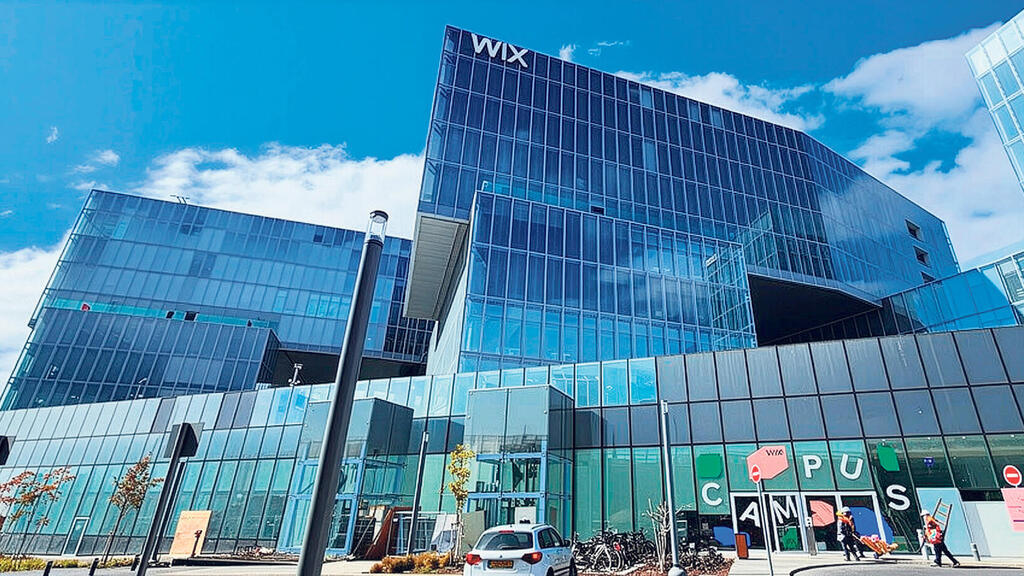
Could Wix and Fiverr merge to weather AI disruption?
Wix’s billion-dollar notes sale has fueled speculation about a merger with Fiverr, where President Nir Zohar sits on the board. Fiverr is set to move into Wix’s campus next year, but despite shared fears over AI disruption, it remains unclear whether such a pairing will ever materialize.
The huge $1 billion fundraising completed by Wix on Wall Street this week ignited the imagination of investors who immediately began speculating about bold strategic moves. Although issuing convertible notes that carry zero interest is something that Wall Street–listed technology companies do every few years, the unusually large amount has raised questions about whether the Israeli internet company is planning something significant.
After all, it will take a major step to ease the concerns currently weighing on most software companies, and even more so on a company like Wix, which builds websites. Those concerns stem from the disruption artificial intelligence is causing to their markets and business models.
As evidence, in contrast to the usual negative reaction to a fundraising of this scale, which typically leads to fears of investor dilution, even if not immediately, Wix shares actually rose 9% on Tuesday. However, even after that gain, the stock is still showing a steep negative return of 22% since the beginning of the year, a striking contrast to the 13% rise in the Nasdaq over the same period.
The stock continues to suffer from negative sentiment even though Wix, for its part, has reported improved performance for several consecutive quarters, and in its latest report even exceeded expectations and raised forecasts.
In other words, similar to other Israeli software companies such as Monday or Nice, investors are not worried about today or tomorrow, but about the day after tomorrow, when AI adoption expands, business models are reshaped, and Wix customers may ask themselves why not let an AI agent build their website instead of using Wix’s platform.
Wix has already taken a step in that direction with the acquisition of Maor Shlomo’s vibe coding company Base44 for $80 million. The deal has met expectations so far, but it is also clear that this is just a test run for something bigger. A move that will signal to Wix investors and customers: we are ready for the AI tsunami, as Oracle’s Larry Ellison described it this week.
Wix does not explicitly say that its next move will necessarily be a major acquisition, potentially financed, at least in part, by the billion dollars raised this week, but it does not deny that it is searching for something to reassure investors. Within the Israeli high-tech industry, one intriguing question has been raised: why wouldn’t Wix acquire Fiverr?
Fiverr is facing the same challenges as Wix, and in its case the impact of AI disruption is being felt even more acutely, as freelancers who rely on its platform are already losing clients to artificial intelligence.
For example, translation, simple graphics for presentations, and basic programming tasks are increasingly being handled by AI. In programming, even companies like Base44 are benefiting, enabling users to build applications with verbal prompts without knowing how to code.
Fiverr’s stock has also dropped 25% since the beginning of the year, despite the company’s widely publicized launch of several AI tools designed to help freelancers secure more work and increase efficiency. Like Wix, Fiverr is still performing consistently, even if it has not returned to its pandemic-era growth rates.
Both companies target the same audience of small and independent businesses and could, in theory, create scale advantages by joining forces, offering a broader platform that manages the entire digital presence of small businesses online.
Together, Wix and Fiverr could also bolster their AI development capabilities and create a larger, more stable company in Wall Street terms. Wix has already slipped below a $10 billion valuation, which could take it off some investors’ radar, while Fiverr is trading at under $1 billion. Even with a generous premium, Wix could acquire Fiverr at a valuation of $1.5–2 billion in a combined cash-and-stock deal.
In fact, the market today values Fiverr very pessimistically. With expected revenue of $430 million this year, profitability, positive cash flow, and around $400 million in cash, its market cap is just $870 million. Fiverr employs about 1,000 people, many of whom Wix would not need, but in today’s climate programmers with AI experience are worth their weight in gold.
Related articles:
Beyond business logic, the two companies also share close ties. Wix president Nir Zohar sits on Fiverr’s board, and in early 2027 Fiverr is scheduled to move to the Wix campus after its current lease in Tel Aviv expires.
Both Zohar and Micha Kaufman, Fiverr’s co-founder and CEO, are also prominent figures in the high-tech protest movement against the judicial overhaul. Yet Israeli tech history is filled with stories of “perfect on paper” pairings that never materialized, often because of ego or short-term thinking. The most famous example was Amdocs and Comverse, but other companies have also disappeared because they failed to consolidate when the opportunity was there.
So what are the chances of a Wix-Fiverr deal actually happening? For now, they appear slim. Fiverr in particular is not yet ready to admit the severity of the threat it faces, still hoping its AI tools will change freelancer behavior and stabilize its user base. But its Q2 results showed no improvement: active users fell again to 3.4 million, back to 2020 levels, after peaking at 4.2 million in late 2022.
Wix, meanwhile, wants to be proactive and remains encouraged by its first experience with the Base44 acquisition, which has so far performed better than expected.
For Wix, Fiverr is not the first priority, and it is possible the company will look instead for a more AI-focused target as an aggressive move. An acquisition of Fiverr, by contrast, would be seen as more defensive. Still, the physical proximity of the two companies, soon to share the same campus, could create unexpected momentum that surprises even their executives and fulfills the hopes of the local ecosystem.
